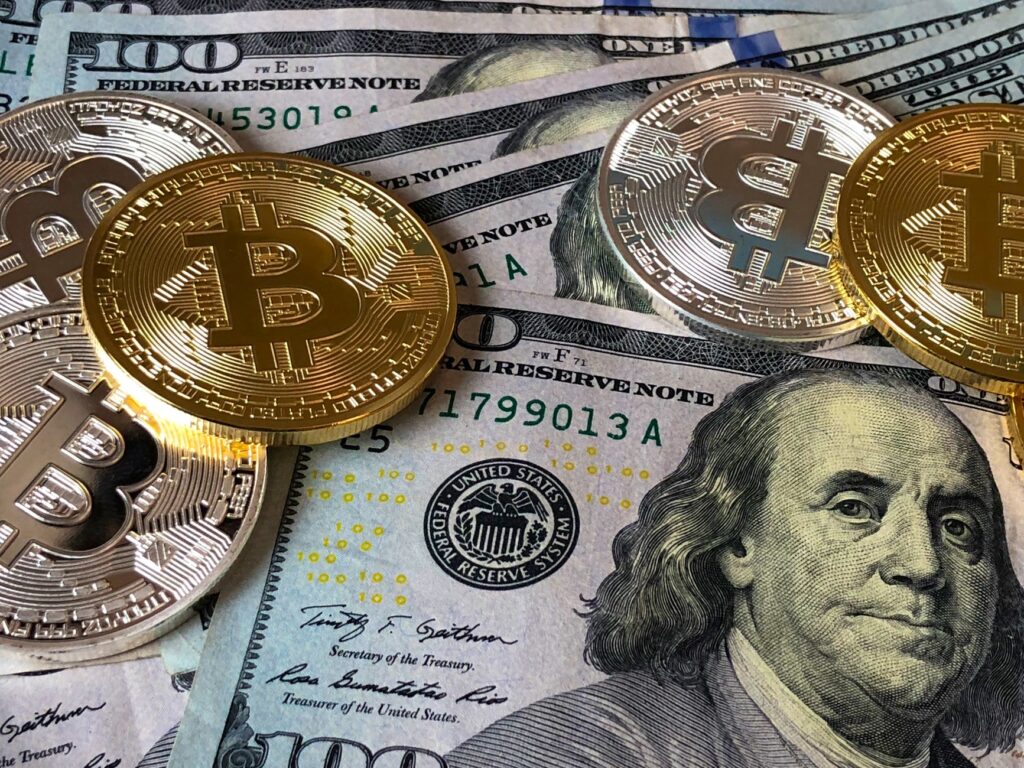The convergence of cryptocurrencies and digital gaming is remodeling how developers and audiences perceive both industries. It provides modernized methods of generating profits, virtual assets, and immersive experiences. Blockchain-based games create a new source of income through investments in games. Cryptocurrencies can transform the gaming industry by increasing player retention, engagement, and new revenue streams.
This article explores the financial prospects of cryptocurrencies in the gaming industry and examines the opportunities and risks of economic empowerment through Bitcoin accessibility.

Case Study: Crypto Slots
Before diving into the financial details of crypto gaming, let’s look at how it has changed slot machines, which have been around for over a century and have always been a popular way to gamble. In recent years, the rise of cryptocurrency has significantly impacted the slot machine industry.
Today, many crypto casino slots are available through online platforms with more features, themes, pay lines, and reels. Most importantly, crypto has revolutionized the payment method and gameplay in online slots. Players can now place bets, deposit, and withdraw funds using cryptocurrencies like Bitcoin or Ethereum; this is more secure, faster, and cheaper than traditional payment methods like credit cards or bank transfers.
Crypto has also allowed developers to create more transparent and fair slot games. For example, anyone can verify slot games that use blockchain technology, which makes it impossible for developers to cheat or manipulate the results.
The impact of crypto goes beyond slot games. It has revolutionized all types of online gaming.
Virtual Economies in Transition
Initially, in-game economies were built using gold, coins, points, and credits earned through gaming quests. Later, this was made possible through microtransactions in exchange for real money. Nowadays, gaming has progressed significantly with technological convergence, introducing free online gaming on smartphones and tablets. However, this meant that currency sales were no longer a viable option. Developers had to find new ways to increase revenue, such as creating a virtual economy. In November 2017, Axiom Zen introduced crypto gaming to solve this problem.
Crypto gaming aims to create a virtual economy using non-fungible tokens (NFTs) or cryptocurrency. The growth of blockchain technology has paved the way for virtual economies within digital gaming. Cryptocurrency has increased security by providing distributed ledger technology (DLT), which records transactions. NFTs provide a concrete in-game asset for players to own; players can buy, sell, or exchange them during an NFT swap. It has also made it easier to perform transactions using online payment methods. Such factors have led to increased investments in crypto gaming, enabling new business models.
Cryptocurrencies as Alternative Assets
The convergence of cryptocurrencies and gaming has reshaped the concept of gaming thriftiness with virtual assets. Cryptocurrencies offer an alternative investment opportunity, and players can use these assets in online gaming to earn money.
The financial value of cryptocurrency in blockchain games can fluctuate depending on the type of digital asset, market conditions, and investment strategy. For example, cryptocurrency can purchase in-game items to help players advance through levels.
Players can also use cryptocurrency to participate in Staking: “locking up Bitcoins for some time in exchange for new coins or tokens.” Players can also use NFTs to make gaming transactions such as sales and trades or as proof of in-game credit. According to CNBC, the Bitcoin market rose despite the U.S. crackdown,as the crypto market generated $84 billion in value. Most importantly, digital assets’ value can increase over time, which means that profit in sales can go higher.
Ownership Redefined with Digital Collectibles
The financial appeal of digital collectibles lies in the profit margin of cryptocurrency sales. In the early stages, developers owned in-game assets, which could restrict players’ access to them. Cryptocurrencies allow players to hold their assets as non-fungible tokens (NFTs), which they own and can sell or trade.
In addition to buying and selling NFTs, players can earn cryptocurrencies through “play-to-earn” games, in which they complete levels or tasks in exchange for cryptocurrencies; this has also led to more immersive and social gaming, as players can purchase properties to build houses and businesses. Cryptocurrency assets, such as NFTs, represent ownership of virtual items or collectibles stored on a secure blockchain.
Monetization Strategies in the New Landscape
Cryptocurrencies have enabled several game monetization trends and profitable strategies. For instance, it created subscription models for online content items, which required payment to purchase artifacts or gaming services using cryptocurrencies. The gaming industry could monetize small payments and microtransactions in exchange for non-fungible tokens (NFTs). Developers offered rewards in exchange for game support by locking up cryptocurrency. Developers can also monetize using airdrops, which means games offer tokens or free cryptocurrency to promote their game.
Balancing Investment Opportunities and Risks
Crypto gaming offers players many potential investment opportunities. Several crypto-enabled gaming has native game tokens to purchase, and they also can vote on governance proposals. It also allowed gamers to earn rewards and passive income from liquidity pools, called Yield farming. However, there are essential things to remember before investing in cryptocurrency.
Cryptocurrency market value is highly volatile, so players can lose money due to fluctuations in the value of in-game assets. Hackers also target crypto gaming platforms, stealing personal information or in-game purchases. However, players can mitigate this risk using two-factor authentication, strong passwords, and security systems.
FinCEN, the U.S. government agency, has not yet fully established crypto gaming regulations. This means that players’ in-game assets lack liquidity. Players may lose the ability to play crypto games or trade in-game assets. Crypto gaming development is still in its early stages, which raises some technical issues regarding game development. Players are also vulnerable to crypto gaming scams. The most common scams involve promising large profits through fake games.
Overall, the integration of cryptocurrencies can boost crypto gaming development. The industry will thrive due to new monetization models. The convergence of cryptocurrencies increases the likelihood of secure and transparent new gameplay in the near future.









